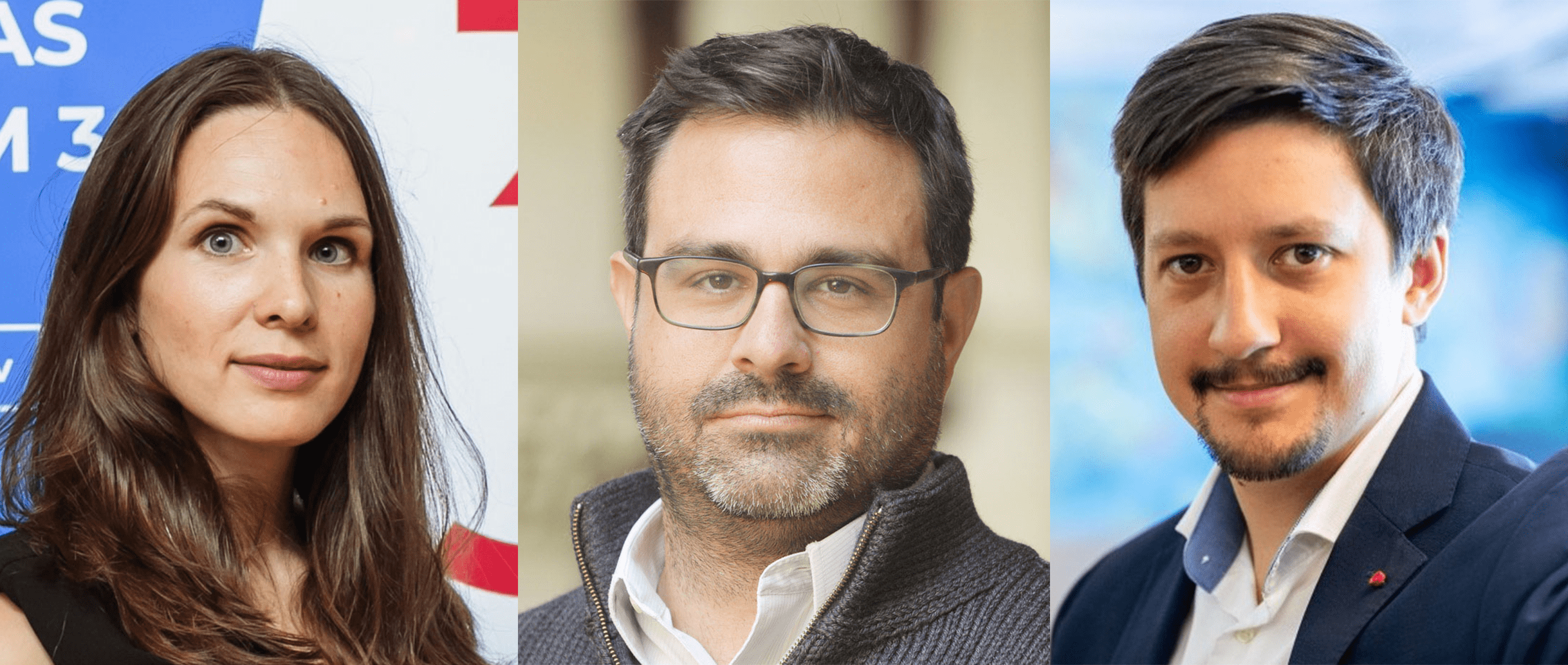Date:
Monday, September 11, 2023
Time:
5:00-6:00 pm: Panel discussion
6:00-7:00 pm: Reception
Location:
Vabamu, Toompea 8b, Tallinn
The past 8 years have seen major shifts in the United States and parts of Europe over perceptions of China, giving rise to debates about the scope, scale, and goals of “de-risking” trade relationships with China, especially when it comes to digital technologies. What is the status of this debate in the United States, and how does political polarization affect U.S. policy toward China? And what is the status of this debate in Europe—can Europe speak with one voice on China? These topics will be discussed by Andrew Grotto, William J. Perry International Security Fellow and Director of the Program on Geopolitics, Technology, and Governance at Stanford University, and Una Aleksandra Beržina-Čerenkova, Head of the Asia Research Programme at the Riga Stradiņš University.
The discussion will be moderated by Luukas Ilves, Estonia’s Government Chief Information Officer.
The event is free and open to the public. RSVP is requested.
The panel discussion and a Q&A session will be held in English. The panel discussion will be followed by a reception.
This event is part of the Global Conversations Talk Series and is co-organized by Vabamu and Stanford Libraries.
Members of the panel discussion:
Andrew J. Grotto is a William J. Perry International Security Fellow at the Cyber Policy Center and a Research Fellow at the Hoover Institution, both at Stanford University.
Grotto’s research interests center on the national security and international economic dimensions of America’s global leadership in information technology innovation, and its growing reliance on this innovation for its economic and social life.
Before coming to Stanford, Grotto was the Senior Director for Cybersecurity Policy at the White House in both the Obama and Trump Administrations. His portfolio spanned a range of cyber policy issues, including defense of the financial services, energy, communications, transportation, health care, electoral infrastructure, and other vital critical infrastructure sectors; cybersecurity risk management policies for federal networks; consumer cybersecurity; and cyber incident response policy and incident management. He also coordinated development and execution of technology policy topics with a nexus to cyber policy, such as encryption, surveillance, privacy, and the national security dimensions of artificial intelligence and machine learning.
Grotto received his JD from the University of California at Berkeley, his MPA from Harvard University, and his BA from the University of Kentucky.
Una Aleksandra Beržina-Čerenkova is a political scientist, China scholar, Head of Riga Stradinš University China Studies Centre, Head of the Asia program at the Latvian Institute of International Affairs, and a member of the European Think tank Network on China. Dr. Bērziņa-Čerenkova has studied at Beijing Language University, Beijing Normal University et.al. After having defended her doctoral dissertation on traditional Chinese discourse in Hu Jintao’s report to the 17th National Congress of the Communist Party of China, she has held a Senior visiting research scholar position at Fudan University School of Philosophy, Shanghai, China (2014/15) and a Fulbright visiting scholar position at the Center for East Asia Studies, Stanford University, USA (2019/20). Dr. Bērziņa-Čerenkova publishes on PRC political discourse, contemporary Chinese ideology, EU-China relations, as well as Belt and Road and other transcontinental interconnectivity initiatives.
Luukas Ilves serves as the Government Chief Information Officer of the Government of Estonia. He has spent the past decade advancing an Estonian vision for e-government, cybersecurity, and the digital economy in the EU. Before joining the Ministry of Economic Affairs and Communications of Estonia, Luukas was the Head of Strategy at Guardtime.
He has led digital policy during Estonia’s 2017 EU Presidency and served as a member of staff for the European Commission Vice President Neelie Kroes. He has negotiated EU legislation on e-ID, digital government, data flows, cyber security and telecommunications.
Luukas is a graduate of Stanford University, a reserve officer and a member of the Estonian Defence League’s Cyber Defence Unit. He has been decorated by the President of Estonia with the Order of the White Star for his contributions to Estonia and the EU.

 Back
Back